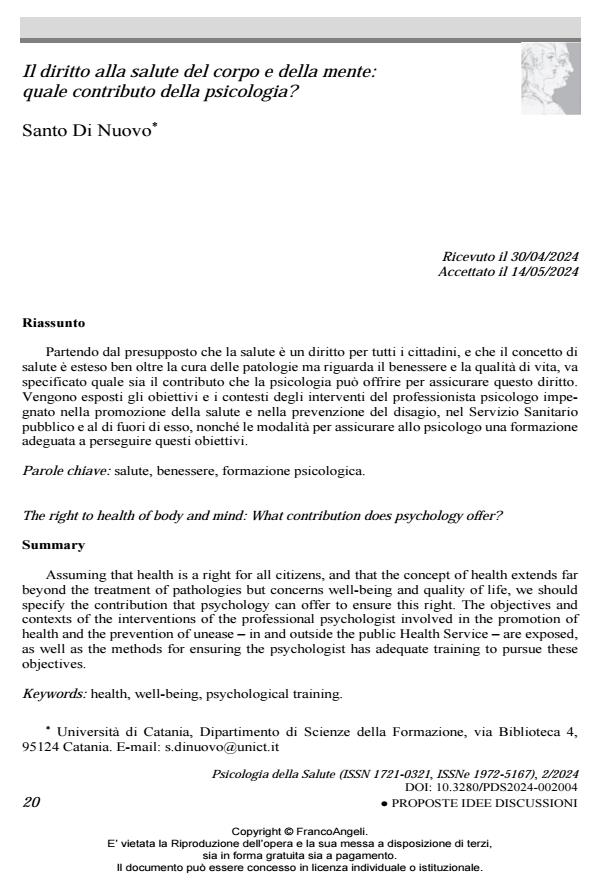The right to health of body and mind: What contribution does psychology offer?
Journal title PSICOLOGIA DELLA SALUTE
Author/s Santo Di Nuovo
Publishing Year 2024 Issue 2024/2
Language Italian Pages 8 P. 20-27 File size 211 KB
DOI 10.3280/PDS2024-002004
DOI is like a bar code for intellectual property: to have more infomation
click here
Below, you can see the article first page
If you want to buy this article in PDF format, you can do it, following the instructions to buy download credits

FrancoAngeli is member of Publishers International Linking Association, Inc (PILA), a not-for-profit association which run the CrossRef service enabling links to and from online scholarly content.
Assuming that health is a right for all citizens, and that the concept of health extends far beyond the treatment of pathologies but concerns well-being and quality of life, we should specify the contribution that psychology can offer to ensure this right. The objectives and con-texts of the interventions of the professional psychologist involved in the promotion of health and the prevention of unease ‒ in and outside the public Health Service ‒ are exposed, as well as the methods for ensuring the psychologist has adequate training to pursue these objectives.
Keywords: health, well-being, psychological training.
Santo Di Nuovo, Il diritto alla salute del corpo e della mente: quale contributo della psicologia? in "PSICOLOGIA DELLA SALUTE" 2/2024, pp 20-27, DOI: 10.3280/PDS2024-002004